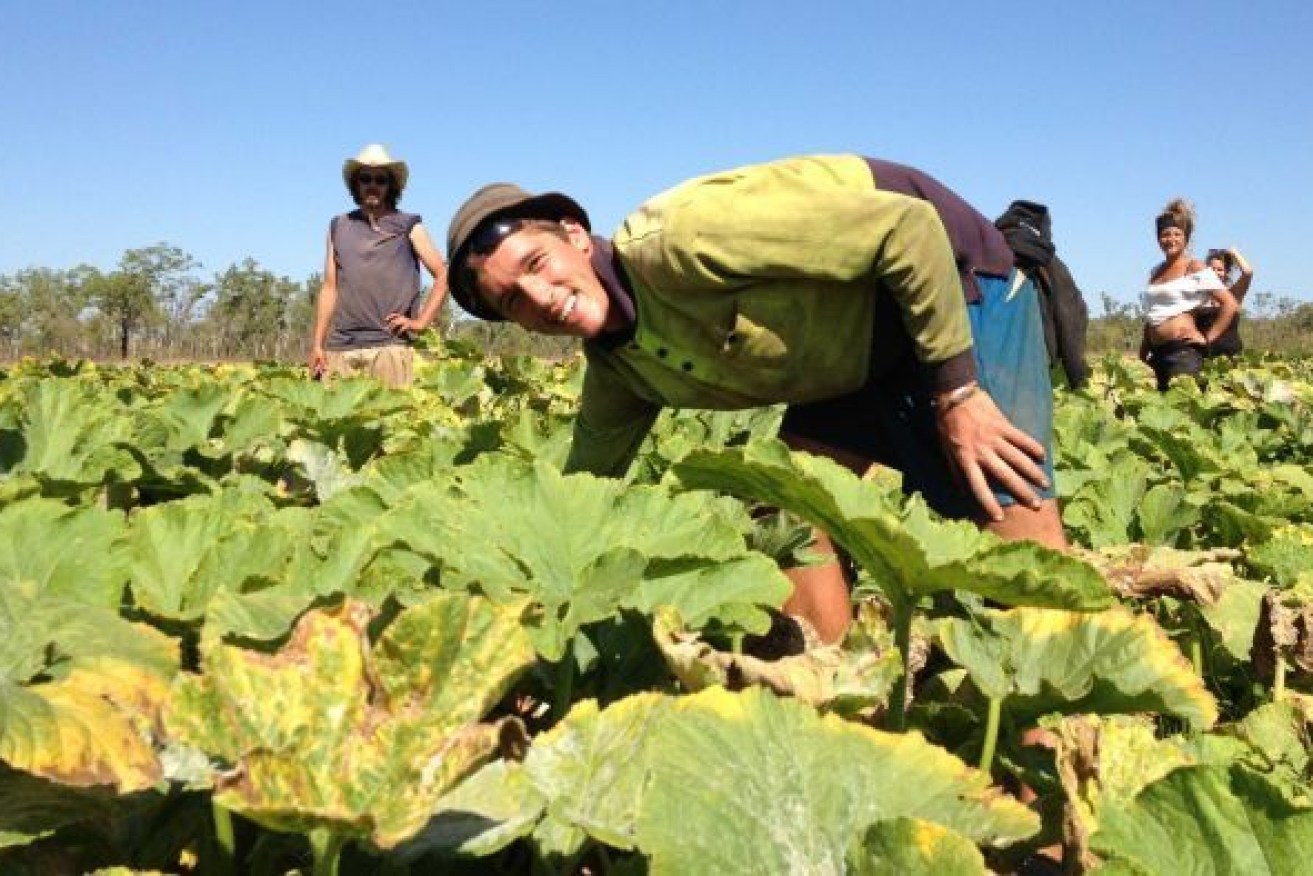Farm sector is desperate for workers, but won’t hike pay to recruit them


The agriculture industry is calling for more workers, but critics say they deserve more pay. Photo: AAP
While floods, COVID and supply-chain problems have caused food prices around Australia to rise, a chronic shortage of farm workers could slow the a return to normality.
Coles hiked grocery prices 3.8 per cent in the six months to June, with vegetables prices hard hit. Recent drier weather has allowed farmers to replenish their crops enough for prices on produce such as lettuce to ease.
But the shortage of at least 172,000 workers across the food supply chain could have long-term effects on the price and availability of food in stores, claimed the National Farmers Federation (NFF).
However, the industry does not want to attract workers with better wages.
Workers affect demand and supply
NFF CEO Tony Mahar told The New Daily that if there’s not enough workers to plant or harvest a crop, then the amount of produce that makes its way into stores will be reduced, which will push up prices.
Ben White, associate professor at the University of Western Australia’s School of Agriculture, said how much prices are affected depends on the importance of labour in the production of the individual agricultural product.
This means produce such as tomatoes, lettuce, apples and strawberries, which rely on hands-on workers for planting, harvesting, and packing, will be subject to more price pressures if there are not enough workers.
No wage rise on offer
Industry leaders will take their appeal for more workers to the government’s jobs and skills summit next week.
The NFF’s submission to the summit includes suggestions such as faster visa processing for migrants; an app to attract local workers, and lifting restrictions on the employment of welfare recipients such as pensioners and NDIS participants.
A call for increased wages to entice workers dealing with the rising cost of living is absent from the NFF’s recommendations.
Instead, the NFF recommends a return to the ‘no-disadvantage’ test; a lower-standard for pay deals than its 2009 replacement, the ‘better off overall test’, which requires any new enterprise agreement to leave workers better off.
The NFF’s suggestion to take ‘non-monetary benefits’ into account during enterprise bargaining has outraged the Australian Workers Union, which accused the farmers’ body of advocating for workers to be paid with food, fuel and accommodation in lieu of money.
“The days of vulnerable workers being ‘paid’ with food instead of money should be long behind us,” AWU national secretary Daniel Walton said.
“If you work in Australia, you deserve the Australian minimum wage and not a cent less. No ifs, no buts.”
Mr Mahar denied the NFF was suggesting workers should have their wages paid with anything other than money, and said the non-monetary benefits should be provided in addition to the minimum award wage.
“We would never, and we have never, advocated for anything other than the award wage plus any other measures that might go to enhancing and complementing the award,” he said.
Higher pay
Agricultural pickers and packers only received a minimum rate of pay in April, but with the country’s high cost of living and tight labour market, Dr White said farmers should be offering higher pay if they want to attract city-dwellers or international migrants.
“It seems obvious that the reason that people work in Perth in preference to working out in [Western Australia’s] Wheatbelt … comes down to the fact that the wage rates in Perth are quite high,” he said.
“The labour market in Perth at the moment is fairly tight, so they’re not going to be prepared to move out to the Wheatbelt for what is probably a seasonal job, and one that doesn’t actually pay that much.”








